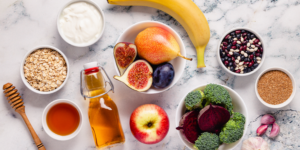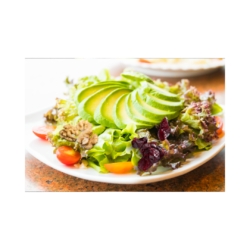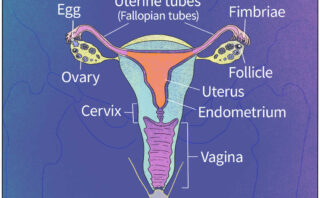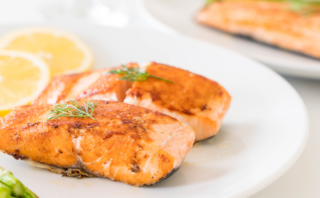Gut Flora and Stress
An imbalance in your gut flora doesn’t just affect you physically, it can affect you mentally. Studies show that having an overgrowth of certain bacteria in the gut can trigger a systemic stress response  that keeps you in fight or flight mode, which is characterized by increased heart rate, high blood pressure, increased blood glucose, difficulty focusing and slowed digestion at all times. Staying in fight or flight long-term can cause chronic inflammation that leads to chronic diseases. Conversely, having the “right” balance of Bifidobacterium and Lactobacillus can turn off the hormonal signals that cause that chronic stress response.
that keeps you in fight or flight mode, which is characterized by increased heart rate, high blood pressure, increased blood glucose, difficulty focusing and slowed digestion at all times. Staying in fight or flight long-term can cause chronic inflammation that leads to chronic diseases. Conversely, having the “right” balance of Bifidobacterium and Lactobacillus can turn off the hormonal signals that cause that chronic stress response.
Importance of Probiotics
Probiotics are live cultures that provide some type of benefit to the host-you. In the case of gut dysbiosis, probiotics help repopulate the gut with good bacteria to help restore the balance. There are two major ways to introduce probiotics into your gut.
Fermented Foods
Fermented foods are not a new thing. Fermented foods are those that have been preserved using a process called lacto-fermentation. During this process, bacteria feed on the sugars and starches naturally present in the food. Fermentation does more than increase a food’s shelf life. It makes the food more digestible, changes flavor and texture, reduces the presence of carbohydrates known for causing gas, and synthesizes vitamins like vitamin B12.
Supplements
If your gut is really lacking in healthy bacteria, diet alone may not be enough to bring your numbers back up to normal. Remember, a healthy gut contains trillions of bacteria and sometimes yogurt and sauerkraut just aren’t enough to get you where you need to be. In these cases, taking a high-dose probiotic regularly is important. One probiotic capsule can contain anywhere form 1 billion to 100 billion bacteria.
Fixing Bacterial Imbalance
Correcting bacterial imbalance requires a multifaceted approach. There is no miracle or quick fix. It requires several changes in diet and lifestyle habits. The amount of time it takes to bring the bacteria in your gut back to a healthy balance depends on several factors, including the amount of damage to your gut flora and your willingness to adhere to a lifestyle that allows good bacteria to thrive.
Here’s a Dinner Recipe for you to enjoy!

Grilled Lemon Salmon
Ingredients
- 1 1/2 lb salmon fillets
- 1/8 tsp lemon pepper
- 1 tbsp minced fresh rosemary or thyme
- 1/3 cup coconut aminos
- 1/3 cup filtered water
- 1/2 cup extra-light olive oil, plus ore for oiling grill
Instructions
- Cut the salmon fillet into 4 equal portions. Sprinkle fillets with lemon pepper and rosemary.
- Mix together coconut aminos, lemon juice, water and olive oil.
- Place fish in a large resealable plastic bag with marinade mixture, seal and turn to coat. Refrigerate for 2 hours, turning several times.
- Lightly oil a grill or large skillet. Place salmon on cooking surface and discard marinade. Cook salmon for about 6 - 8 minutes per side, or until the fish flakes easily. Serve.
For more help with gut health and overall well-being, contact us here! We would be happy to help with making a plan for optimizing digestion and gut health.
[wpforms id=”9068″]





